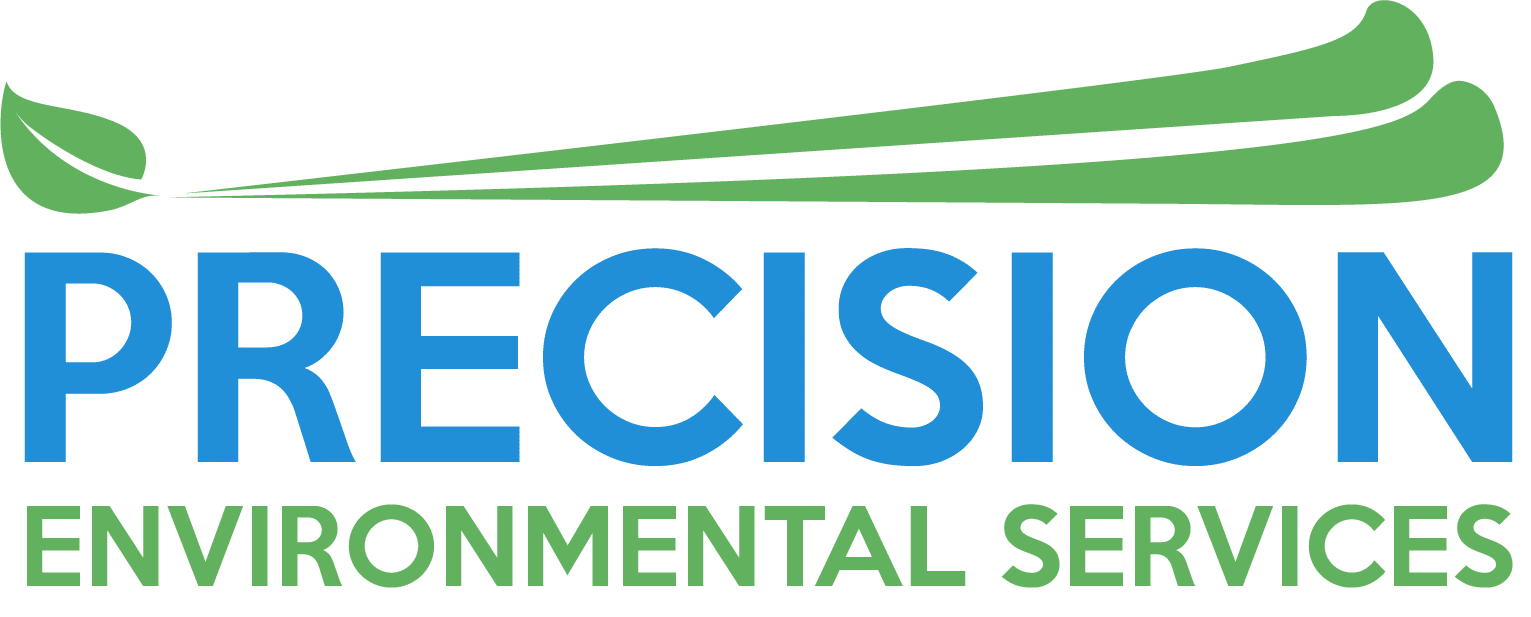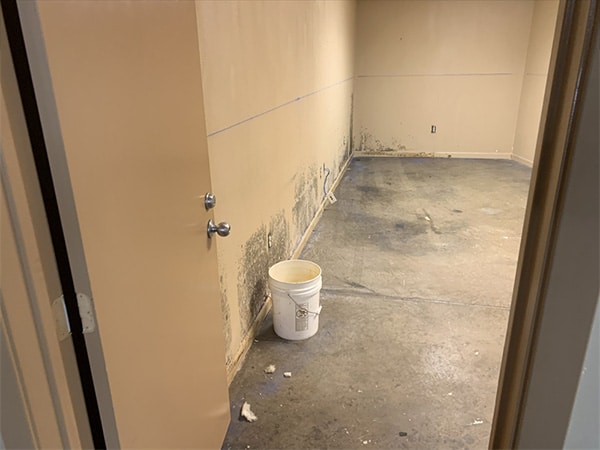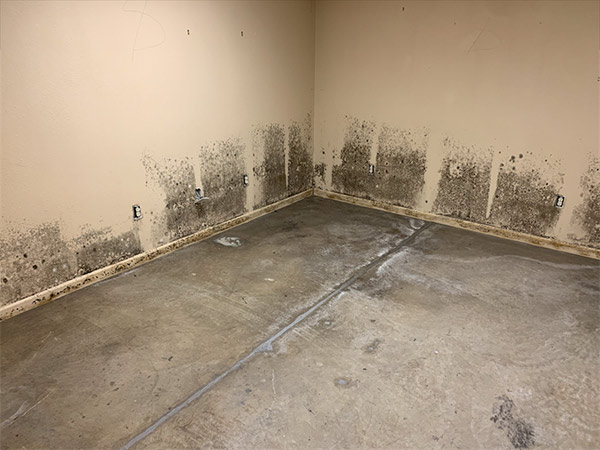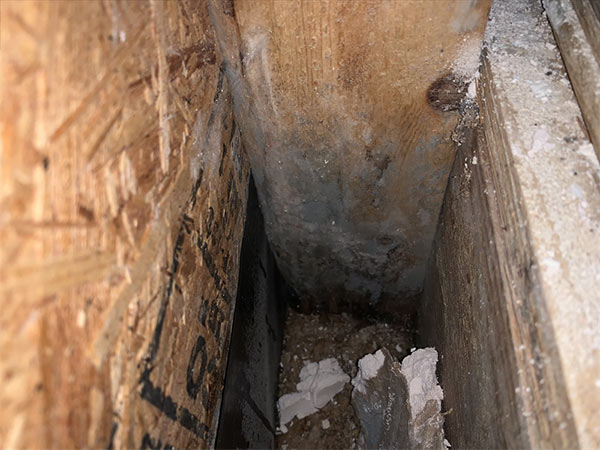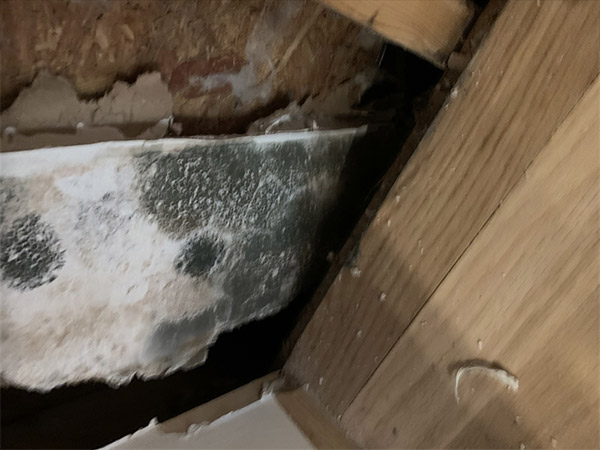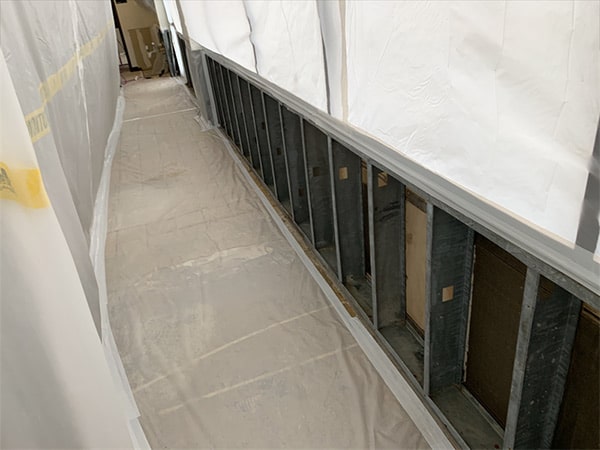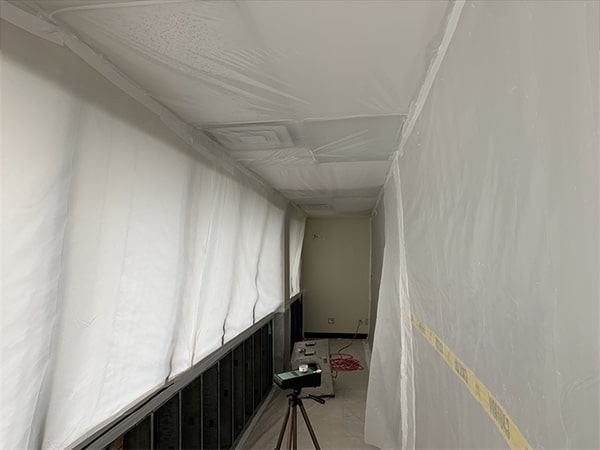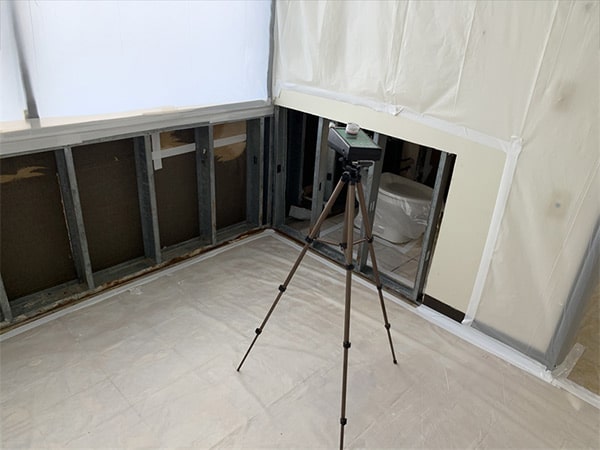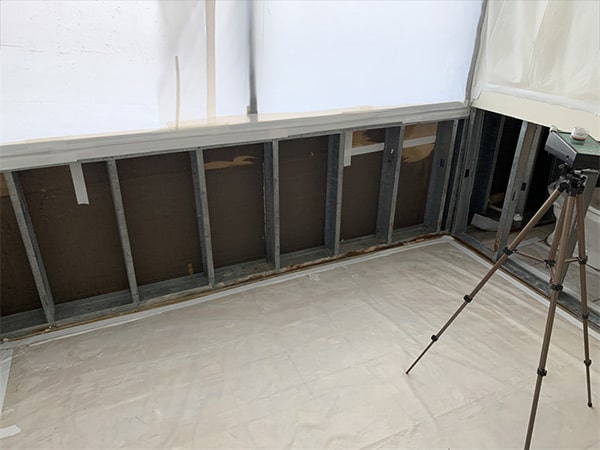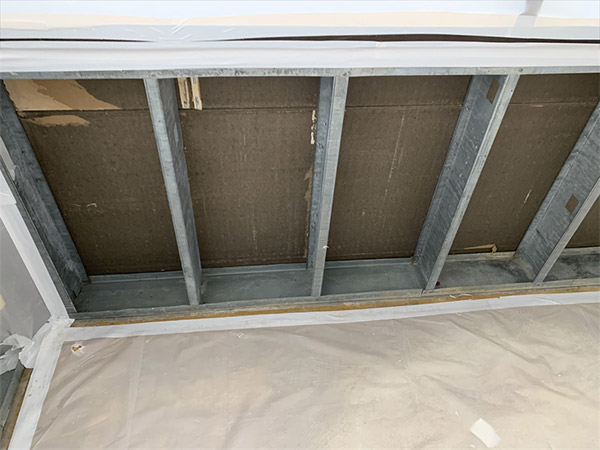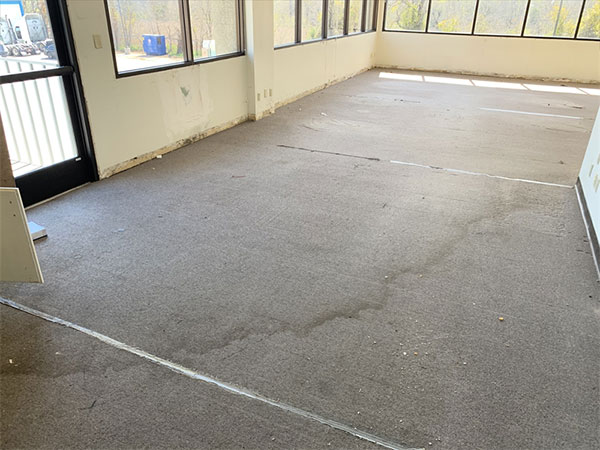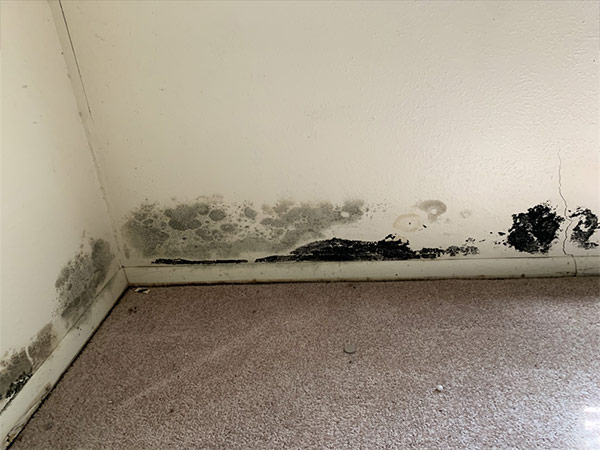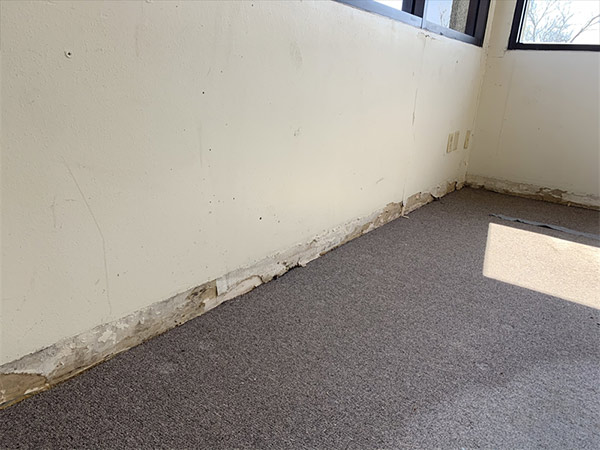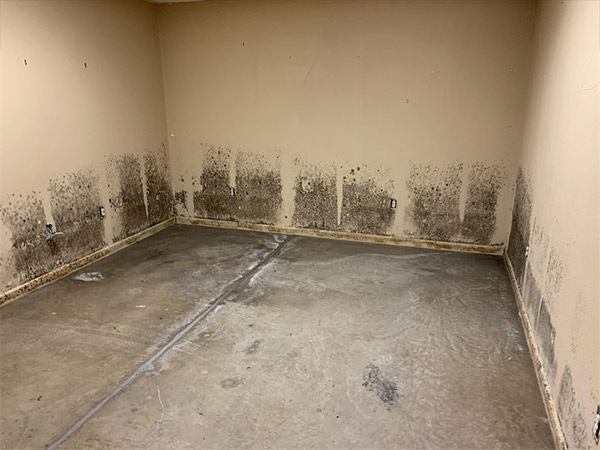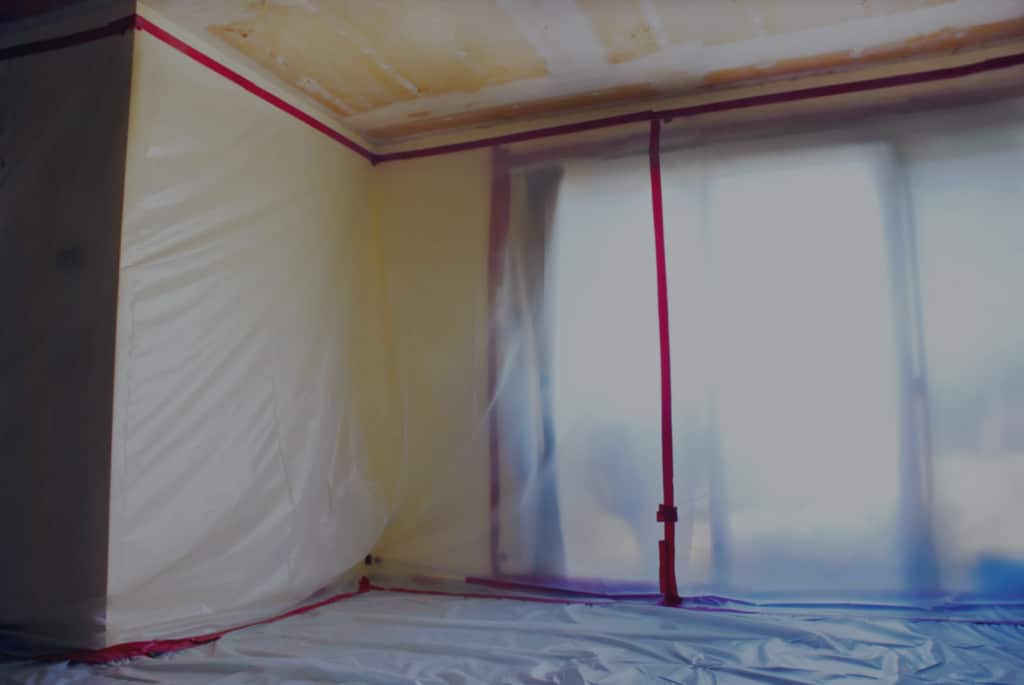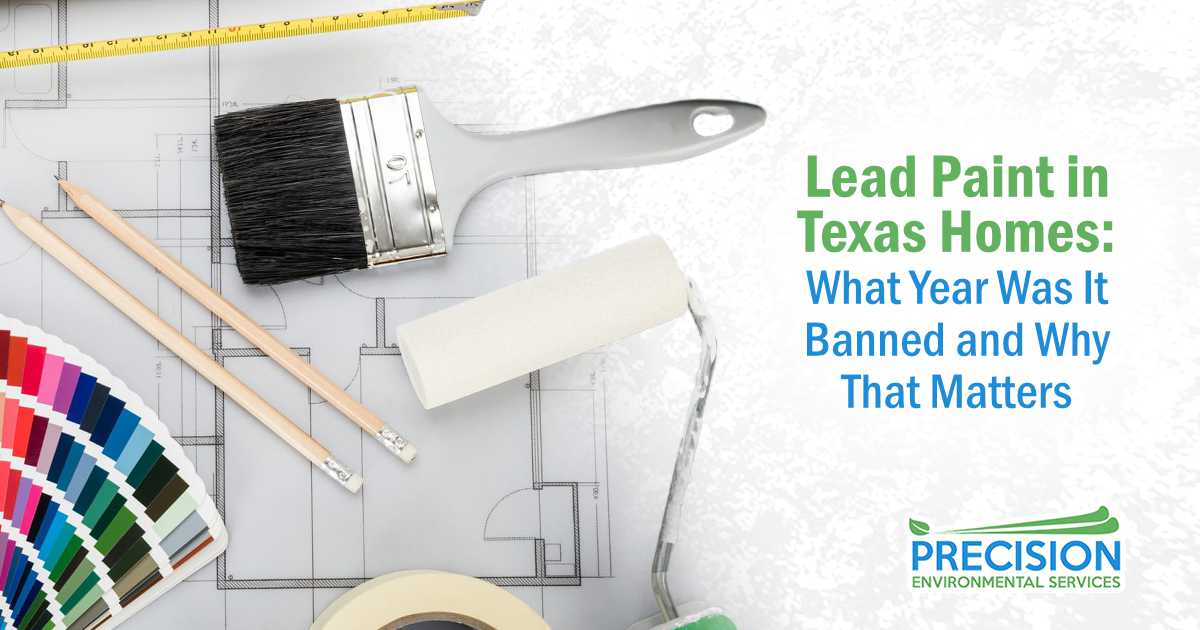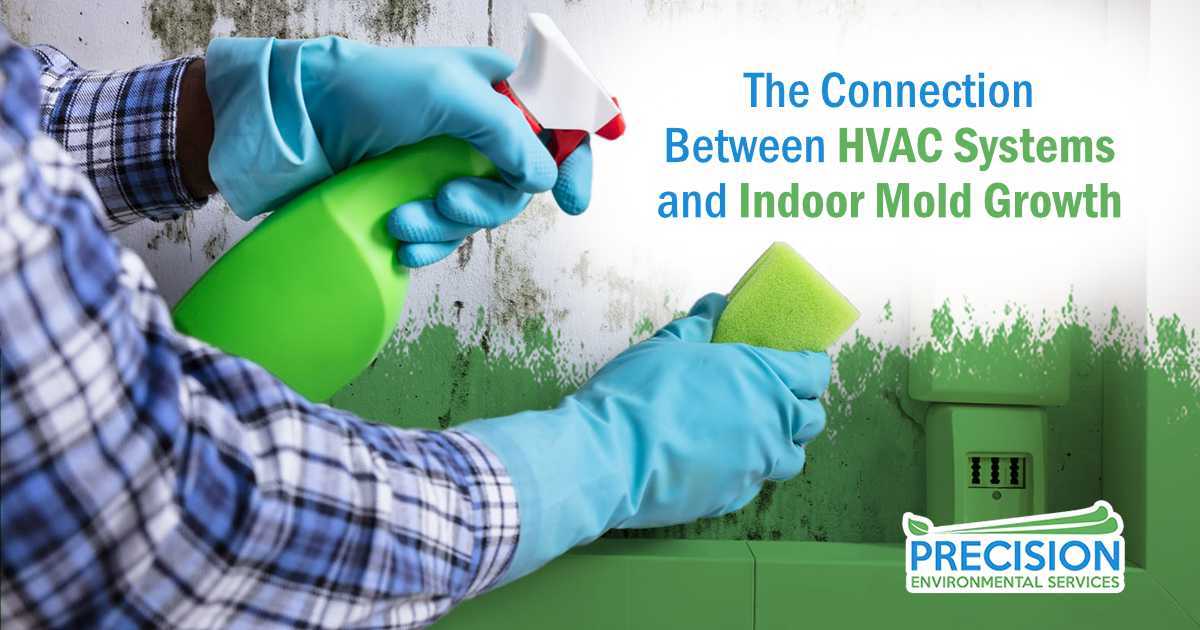Mold Services – Professional Mold Testing
Get Estimate
Mold Testing
Mold Assessment / Inspections
Precision will perform a preliminary indoor air-quality assessment / mold assessment to identify potential indoor air quality issues within the building or residence. The assessment will be performed by a TDLR licensed Mold Assessment Consultant.
The first step of the assessment will be to visually assess the area for visible mold and moisture. If necessary, Precision will collect surface samples and/ or non-viable air samples (i.e. spore-trap samples) for laboratory analysis. The samples will be analyzed for the presence of viable and non-viable fungal spores and structures.
Precision’s assessment will be performed in general accordance with the Texas Mold Assessment Rules and indoor air quality standards. Precision’s standard used to judge the quality of indoor air with regard to airborne fungal spores is:
- A total fungal spore count of no more than 30 to 50 percent of outside air; and
- Similar general of fungal spores identified inside and outside.
Also considered is the presence of a specific detrimental genre or species of fungal spores in the indoor air that are considered to be problematic in the absence of the same spores identified in outside air.
Mold Remediation
If mold remediation is needed, Precision will prepare a Mold Remediation Protocol based on the observations and assessment made by the mold assessment consultant. This will detail the scope of the remediation project, including mold abatement procedures, extent of containment, estimated quantities of materials to be removed, and post-remediation clearance requirements. After the mold remediation, Precision will conduct post-remediation clearance sampling. Clearance sampling will include a visual inspection of the containment and air samples.
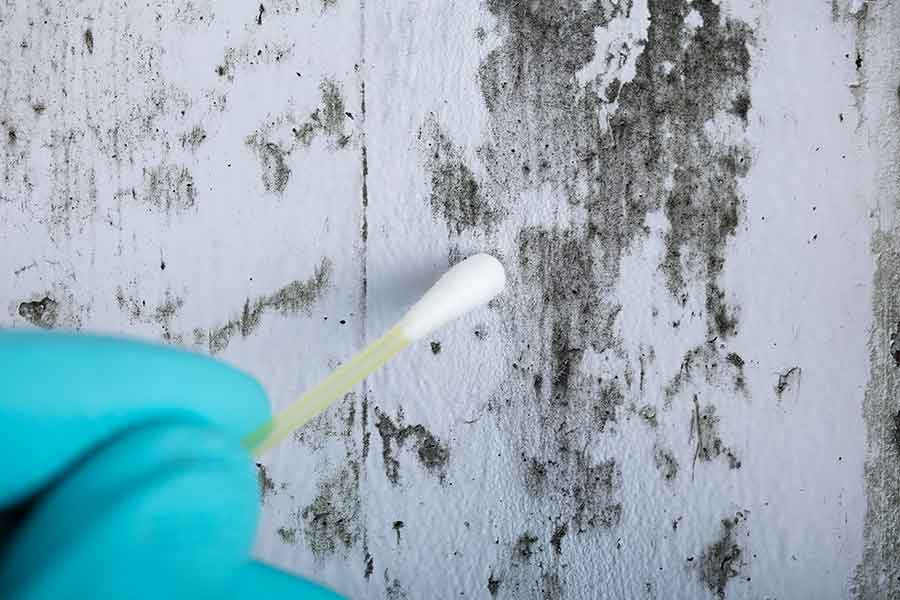
Mold Tests or Inspection
If you need assistance with mold testing and removing the mold in your home, contact Precision Environmental Services at 940-597-2673.
Finding the Right Environmental Mold Services Company
Why should I hire a professional environmental company to test for mold?
Should you suspect there is mold present in your home, there are options of how you can approach the problem. While there are kits available that allow you to do the testing yourself, professionals, like those from Precision Environmental Services, can give you a better understanding of the mold growing in your home, and help come up with a plan to remove it. Professional mold testing is therefore recommended.
Read more about: SHOULD I HAVE MY HOME TESTED FOR MOLD?
SHOULD I HAVE MY HOME TESTED FOR MOLD?
Mold is all around us, indoors and outdoors. However, it is not always easy to locate and identify the hidden danger that may be invading your living space. If you suspect mold is growing in your home, it is best to contact a professional such as Precision Environmental Services to help find the problem and get rid of it for the health of you and your family.
How familiar are you with mold?
You have likely had experience with certain molds during your lifetime. You may have opened your refrigerator to a foul smell or foods turning colors. But some molds have the ability to grow in areas of your home that you do not see frequently, and those molds can be harmful to your health.
By definition, mold is a fungus and spreads through tiny, airborne spores. It is estimated that there are a few hundred thousand types of mold in the world. Most fall into one of three categories:
- Allergenic – causes allergic reactions, such as breathing problems
- Pathogenic – aggravates symptoms for those already facing illnesses
- Toxigenic – can lead to more serious health conditions
Read more about: Professional home inspection - How do I know if mold is growing in my home?
Professional home inspection – How do I know if mold is growing in my home?
In some cases, mold growth is obvious. Dark, damp environments, such as your basement, attic, or bathroom, are perfect for the development of mold.
Visible signs of mold growth include:
- Condensation – Condensation is a sure sign that mold may be present in the environment. Condensation can accumulate on many services, including metals and glass. That moisture can create the perfect setting for mold spores to land on, grow, and spread.
- Water Damage – In some cases, water damage can go unseen for long periods of time. You can feel for dampness on the walls of your home, but other telltale signs include peeling, bulging and cracking of the walls. You may also spot some discoloration of the paint.
- Noticeable Mold – Because mold can come in many shapes, sizes and colors, sometimes it is mistaken for other things, like dirt. However, once small spot is sometimes just the tip of the iceberg. If you see a small area of mold in your home, it could mean that there is a bigger problem hidden from your view.
- Unusual Smells – Smells can also be an indication of mold being present. Most people describe a damp, musty scent when they discover mold. As you might assume, the worse the smell, the more probable that you have a mold problem.
- Deteriorating Conditions – As homes get older, you may notice diminishing conditions. While age plays a major role in the integrity of the structure, mold could be making it worse. Look for warping drywall and wood, as well as chipping paint or peeling wallpaper.
Read more about: When should you test your house for mold?
When should you test your house for mold?
- You don’t see visible mold but you have high humidity.
- You’ve found visible mold growth but it’s unclear what materials have been affected.
- Your family suffers from health problems commonly related to mold exposure.
- You smell musty odors.
- Remediation has been performed and you need proof it’s clean.
Read more about: Black Mold Symptoms and Health Effects
Black Mold Symptoms and Health Effects
If you suffer from a chronic condition, such as asthma, and your symptoms have become worsened, it could be a sign that mold is present in your environment.
Typical mold exposure can lead to the following symptoms:
- Skin or Eye Irritation
- Headache
- Nausea
- Fatigue
- Wheezing
- Insomnia
- Fever
However, if you are already sensitive to molds, it can lead to more serious conditions, including:
- Hypersensitivity Pneumonitis – causes the lungs to become inflamed and can cause scarring if it goes untreated.
- Bronchitis – causes inflammation in the air passages that lead to your lungs.
- Chronic Rhinosinusitis – causes the body to release a chemical to fight fungi, but can clog the sinuses as long as fungi are present.
Read more about: Identifying molds
Identifying molds
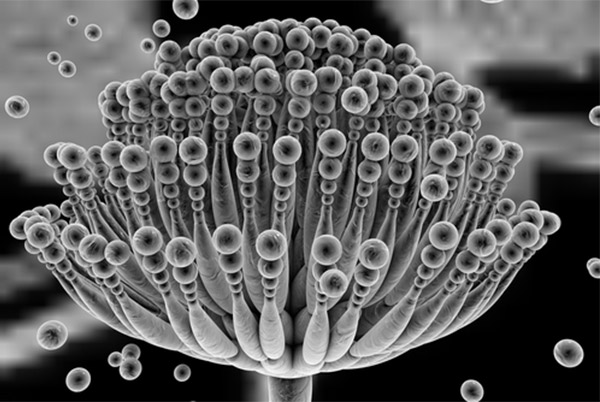
Molds come in a variety shapes, sizes and colors. Some of the more common types of household mold include:
- Stachybotrys Chartarum is also known as black mold. While it is not the most common type of mold, it is toxic and can lead to respiratory issues and mental health problems.
- Alternaria is found in areas with an abundance of moisture, such as a sink or shower. Alternaria causes allergic reactions in people with mold sensitivity, including asthma attacks.
- Penicillium may sound familiar, as it was the first modern antibiotic. When it grows in your home, it can quickly spread and causes issues with your sinuses and respiratory system.
- Aspergillus has not been shown to cause major health issues, but studies have shown that it can lead to breathing problems, and infections of the eyes and ears.
- Chaetomium is known for causing a musty odor when growing in homes. It is most commonly found on water-damaged materials, such as drywall, baseboards and window frames. It can cause allergic reactions, such as coughing, sore throat or sinus congestion.
- Cladosporium is often found in warm, cool areas such as carpets and wood. Its toxins have the most affect on people living with compromised immune systems.
- Fusarium is typically found in soils, but can also grow on fabrics that have been damaged by water. Fusarium can impact the circulatory and nervous system, and has been known to increase symptoms of conditions like asthma.
Read more about: Mold Removal and Remediation
Mold Removal and Remediation
The mold remediation, and can include several steps:
- Containment/Ventilation – Ensuring you have proper ventilation in the area affected by mold is one of, if not the most, important steps in riding your home of mold. Air filtration devices are needed to prevent spores from becoming airborne and spreading further.
- Cleaning/Disinfection – While chloride bleach can be used to get rid of certain household molds, depending on the severity of the problem, you may need professional grade solutions. Once the area is clean, another solution will be applied to keep the mold from reoccurring.
- Repair Source of Mold – Because we know that most areas create a great breeding ground for molds, it is crucial that you address any issues you may be having with leaks or water damage.
- Mold Encapsulation – In some in situations, the mold may not be fully removed from your home. Should this be the case at your home, the mold would be encapsulated – or enclosed – by paint or a similar sealing material that will prevent the mold from growing and spreading further.
- Repeat mold testing to verify remediation was effective.
Call us at 940-597-2673, or use the form to request an estimate.
Frequently Asked Questions
Is mold a health hazard?
Yes. Mold causes health issues and damages your property and belongings. There are several types of molds that exist; however, one thing is common between all of them. Mold will have an immediate negative effect on the health of you and your family as well as your property.
What health concerns are associated with mold?
Large quantities of mold spores in the air have been shown to contribute to respiratory problems, especially in those who already suffer from respiratory conditions such as asthma. Repeated exposure to mold can even increase a person’s sensitivity to spores causing more severe allergic reactions.
Some mold spores can actually be more dangerous than others. Only professional mold testing can accurately identify the specific strains of mold found in your home. Professional testing can also determine if indoor mold levels exceed normal levels and pose a health risk to you or your family.
Black mold, an extremely toxic mold type, presents one of the most dangerous health threats.
What is toxic mold?
There are five toxic mold categories. They include:
- Penicillium
- Cladosporium
- Aspergillus
- Fusarium
- Stachybotrys
The symptoms of being exposed to these toxic molds range from hay fever-like symptoms to potentially deadly illnesses.
The most toxic of the group is Stachybotrys, commonly known as black mold. Black mold is highly toxic and hazardous to human health. It is particularly toxic to infants and individuals with compromised health.
Mold inspectors understand the serious health conditions associated with exposure to toxic mold. Continuous exposure to these types of molds can be extremely harmful to your health. Mold testing can help determine which type of mold is in your home.
How can you tell the difference between mold and black mold?
While people commonly know that black mold is dangerously toxic, it isn’t so easily identified. In fact, there are over 20,000 species of mold that looks black in color but are not actually the harmful Stachybotrys toxic mold.
If you see mold that is black in color in your home, there’s only one way to know for sure if it’s toxic or not and that’s through mold testing. In truth, the name “black mold” can actually be misleading. This is because toxic black mold can vary slightly in color depending on its environment and what is feeding it. In addition, any mold can be toxic in high enough concentrations.
This is why it’s so important to hire a professional to test the mold in your home to see if it is toxic or not. Regardless of toxicity, it’s important to have mold remediation in order to prevent the problem from worsening.
What is mold testing?
Mold testing helps identify which mold species are present in your home and estimates how many mold spores are in the air.
The mold testing process depends on what equipment is used. Generally, a professional mold inspector will collect samples and send them to a lab to be analyzed. If mold is present, then the lab can identify the mold type.
Are there federal regulations or standards regarding mold testing?
There are currently no federal or state regulations regarding mold inspection requirements or remediation. There are also no current regulations or standards in place by the Environmental Protection Agency for airborne mold contaminants.
What are the types of mold tests?
There are three primary types of mold tests.
- Air Sampling – Air samples are collected in and outside of the home for comparison.
- Lift Tape Sampling – Tape is placed on a surface and lifted then placed onto a slide for examination.
- Tape Swab Sampling – This test is used to determine mold type rather than spore count. It uses a swab to wipe a surface to send to a lab for testing.
Along with these testing methods, it’s important to understand pre-and post-testing. Pre-testing is used to determine if a mold problem exists. Post-testing offers reassurance after remediation to determine if the mold problem has been resolved.
When do you need mold testing?
You should conduct mold testing when:
- You suspect microbial growth due to musty odors
- You see visible signs of mold growth
- You have a water-related problem that takes more than 24 to 48 hours to dry
Someone in your family is experiencing chronic respiratory illness
Where is mold discovered in the home?
Mold is commonly found in any area of the home that has moisture. For example, bathrooms, kitchens, utility rooms, and basements. It can also be found in attics if there’s a roof leak and anywhere else that may have moisture buildup.
Should you get a mold inspection when buying a house?
Anytime you buy a home you should have a home inspection. However, most home inspectors aren’t trained to perform a mold inspection. If your home inspector finds any indication of mold, it’s a good idea to request a professional mold inspection.
A mold inspection will let you rest easy that your new home will be a safe place for you and your family by having good indoor air quality and no structural problems due to mold damage.
Does air quality matter?
Indoor air quality absolutely matters when it comes to your home. Think about how much time you spend in your home breathing the air inside. Poor indoor air quality can lead to health problems.
Precision Environmental Services is committed to measuring the contamination of the air in your home environment and provides you with a plan to help improve the quality of your indoor breathing air so you and your loved ones can breathe easier and enjoy your home free of mold and poor air quality.
How do mold inspectors test for mold?
A mold inspector will commonly take an exterior sample as a control to compare to the indoor air quality in the home or building they are inspecting. They do this because there are naturally always `some mold spores in the air. By determining what is normal for the area, they can then decide if the quantities of spores inside the home are due to an unseen mold issue.
Once they have their control sample, they will test inside the home or building. The number of samples is determined by the size of the building. The standard is usually one sample per every 1,000 square feet of space. Generally speaking, it takes about ten minutes per sample.
The mold inspector will also spend additional time in areas of concern. For example, if there is an area with a visible mold problem then they will likely take a sample from inside that room and from outside the room for comparison.
Samples are then sent to a lab for identification.
In addition, mold inspectors may use additional tools to determine if there is excess moisture in any area that could potentially be a breeding area for mold.
How much does a home mold inspection cost?
There are a variety of factors that influence the final cost of a mold inspection. These include the size of the home and the suspected type of mold. It is vital to hire a reputable, certified mold inspector that meets industry standards rather than just going with the cheapest option. You can’t put a price on your family’s health.
What if the inspection identifies a problem?
If your mold inspector identifies a mold problem, then they’ll have suggestions on how to repair the issue. This could just mean improving ventilation or it could be a combination of ventilation and mold removal.
How much does it cost to get mold removed?
The cost to have mold removed depends on how difficult it is to access the area where the mold is growing along with the quantity of mold being removed. There are many companies out there that prey on home buyers and charge them large amounts of money for ineffective mold remediation, but there are also reputable companies such as Precision Environmental Services that provide quality mold remediation at a fair price.
Are you looking for a mold inspection or testing specialist in Flower Mound?
Precision Environmental Services is a premier company that bases its business model on customer health and satisfaction. We offer premium air quality testing, mold testing, and mold remediation services in the Dallas – Fort Worth Metroplex. We’ve proudly been serving the Flower Mound area for years and perform our high-quality services in multiple counties in North Central Texas including:
- Collin
- Cooke
- Dallas
- Denton
- Ellis
- Grayson
- Hood
- Johnson
- Kaufman
- Love
- Montague
- Parker
- Rockwall
- Tarrant
- Wise
Looking for more information?
PES is an environmental consulting company. We are experienced professionals and licensed mold assessment consultants. Mold has become a high-profile issue over recent years as more and more homeowners and insurance companies wrangle with the health issues and responsibilities of cleaning up mold problems.
We offer remediation plans to commercial property owners, homeowners, property managers, government agencies, remediation contractors, and insurance companies. Go Here to see a list of our complete service area.
If you have a flood damage insurance claim or a water damage insurance claim, contact Precision Environmental Services first.
Call for an estimate!
214-888-6956
Latest News
What to Know About Mold and Air Quality in Rental Homes
Renters and landlords often underestimate the impact of poor indoor air quality and mold in rental homes until health issues arise or property...
Lead Paint Ban Year in Texas Homes: What the 1978 Ban Means for Buyers, Renters, and Renovators
Many Texas homeowners and renters assume lead-based paint is no longer a concern. In reality, lead paint remains common in older homes built before...
The Connection Between HVAC Systems and Indoor Mold Growth
HVAC systems are essential for maintaining indoor comfort, regulating temperature, and supporting air quality in homes and commercial properties....
